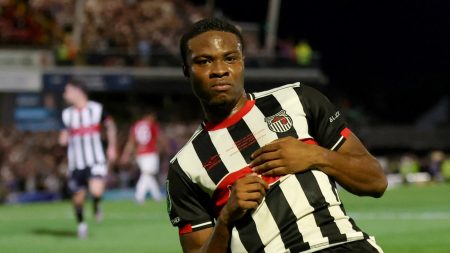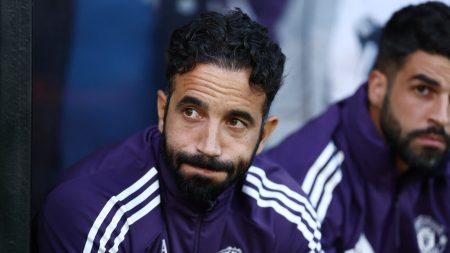Manchester United, under the relatively new leadership of Ruben Amorim, faces a critical juncture in their season. Having secured a commendable 2-2 draw against Liverpool at Anfield and a thrilling FA Cup shootout victory over Arsenal at the Emirates, despite playing a man down, the team’s morale and confidence have received a significant boost. These positive results, achieved against top-tier opposition, are a testament to Amorim’s tactical approach, which emphasizes a high-pressing, all-out effort style of play. Now, however, they face a different kind of challenge against Southampton, the Premier League’s bottom-dwelling team, a match that carries the weight of expectation. Amorim has made it abundantly clear that he expects his players to replicate the intensity and commitment shown in their previous two outings, demanding a performance that reflects the same high-pressing, all-heart approach. Anything less against a struggling Southampton side will be considered a major disappointment, underscoring the pressure Amorim feels to maintain the momentum and establish a consistent winning mentality within his squad.
The focus on youth development and securing promising young talent is also highlighted by former Manchester United midfielder Paul Scholes. Speaking ahead of the Southampton match, Scholes expressed his concerns regarding the contract situation of young midfielder Kobbie Mainoo. He emphasized the importance of prioritizing and nurturing young players like Mainoo and Alejandro Garnacho, viewing them as integral to the club’s future under Amorim. Mainoo’s apparent dissatisfaction with the current contract offer, and his subsequent hesitance to commit to a new deal, presents a potential obstacle for Manchester United’s long-term planning. Scholes’s comments highlight the need for the club to act decisively in securing Mainoo’s future, lest they risk losing a promising talent to other suitors. The situation underscores the inherent complexities of managing young players, balancing their individual ambitions with the club’s overall strategic objectives.
Meanwhile, elsewhere in the football world, an FA Cup tie between Ipswich Town and Brighton & Hove Albion is underway at Portman Road. The early stages of the match are characterized by Brighton’s dominance in possession, controlling the game with 78% possession in the opening ten minutes. Despite their territorial advantage, Brighton struggle to translate their possession into meaningful opportunities, highlighting the often-dichotomous relationship between possession and chance creation. The first real opportunity of the match arises from an error by Ipswich goalkeeper Christian Walton, whose loose pass inadvertently gifts possession to Brighton’s Kaoru Mitoma. However, Mitoma’s subsequent shot lacks power and precision, allowing Walton to easily recover and collect the ball. The match remains goalless, reflecting the early tactical battle and the cautious approach adopted by both teams.
The contrasting storylines – Manchester United’s burgeoning resurgence under Amorim and the tense contract negotiations with Mainoo, juxtaposed with the unfolding FA Cup tie between Ipswich and Brighton – highlight the multifaceted nature of football. From the high-stakes pressure of the Premier League to the unpredictable drama of the FA Cup, each match presents its own unique challenges and narratives. For Manchester United, the focus remains on maintaining their upward trajectory, building upon the positive momentum generated by their recent victories. The challenge lies in translating that momentum into consistent performances against teams of varying strengths and tactical approaches.
Amorim’s demand for a repeat performance against Southampton, echoing the intensity and commitment shown against Liverpool and Arsenal, underscores the demanding nature of top-flight football. The pressure to perform, coupled with the need to manage expectations and navigate complex contract negotiations with young players like Mainoo, presents a significant challenge for the club’s management. The situation with Mainoo highlights the delicate balance between nurturing young talent and securing their long-term commitment to the club, a crucial aspect of building a successful and sustainable future.
Meanwhile, the early stages of the Ipswich-Brighton match reveal the tactical complexities of cup competitions. Brighton’s dominance in possession, yet inability to create clear-cut chances, underscores the importance of converting possession into tangible opportunities. The match serves as a reminder that football is not simply about controlling the ball, but about utilizing possession effectively to create scoring chances and ultimately, winning games. The unfolding story of this FA Cup tie, like the ongoing saga at Manchester United, underscores the unpredictable and captivating nature of the beautiful game.











